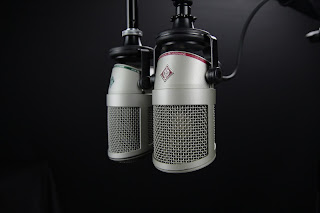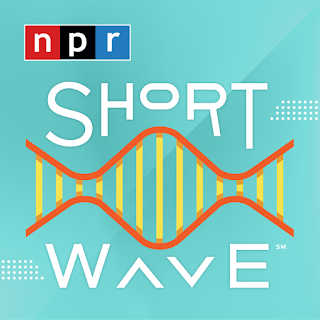Wait Wait... Don't Tell Me! is an hour-long weekly news-based radio panel show produced by WBEZ and National Public Radio (NPR) based in Chicago. It’s been running as a radio show for 22 years and as a podcast for more than a decade. It regularly draws large podcast listener ratings and its popularity is unsurprisingly steady on a weekly basis.
Curiosity Daily is, of course, a daily podcast that specializes in “a unique mix of research-based life hacks, the latest science and technology news, and more.” As a daily podcast, it has built a nice following with listeners checking out an episode Monday thru Friday as part of their daily commute.
Contrast the weekly or daily podcast with a podcast with a limited number of episodes in which there are long gaps in time between seasons just like with TV shows.
Serial, a NPR investigative journalism podcast hosted by Sara Koenig, debuted in 2014 and by mid-2015 iTunes reported that the first season’s episodes had been downloaded more than 80 million times. Serial won a Peabody Award in April 2015 for its innovative telling of a long-form nonfiction story and suddenly episodic podcasting, much like TV seasons, was in vogue.
So there’s ample evidence that podcasts geared toward a daily or weekly schedule can attract a sizable and loyal following. And from Serial and numerous other episode-driven podcasts, these podcast seasons can draw huge numbers.
How should new podcasters structure their shows? As daily or weekly episodes? Or in seasons with a limited number of episodes followed by a gap in time before another season is produced and released?
Frequency means loyalty
As a new podcaster, a daily or weekly podcast schedule puts enormous pressure on you to stay on schedule. But if you do have the equipment, time and persistence to produce a daily episode or weekly podcast, there can be significant benefits.
First, podcast listeners are creatures of habit. From podcast tracking data we can decipher that podcast listeners tend to set up a podcast listening schedule typically around a work commute, work schedule or people exercising at fitness centers or outside. That means they tend to listen to the same podcasts every day or once a week on a somewhat rigid personal schedule.
Although the pandemic has upset everyone’s daily schedule, podcast listening numbers after the pandemic started dipped initially but are now showing slow and steady growth. In essence, podcast listeners have adjusted their podcast listening routine as the pandemic has forced them to alter their daily routine.
For a new podcaster launching a daily podcast, the challenge is to initially attract listeners with compelling content so that listeners will add their podcast to their daily schedule. Once on the daily routine, daily and weekly podcasts often remain there until they either get pushed out by another podcast or that daily or weekly podcast begins to neglect its schedule.
Daily podcasts are often short episodes of about 10 minutes unless one of the large podcast production companies like Slate or NPR develop the podcast and have the resources and dollars to bankroll longer podcasts on a daily basis.
However, for new podcasters with limited resources, shorter is better, cheaper and much more manageable for quality control, schedule integrity and production costs.
Here are a few examples of short-form daily podcasts that have attracted a loyal and sizable listener base.
The award-winning Curiosity Daily podcast is relentlessly upbeat and can back up its marketing claims about making you smarter. In less than 10 minutes, you’ll get a unique mix of research-based life hacks, the latest science and technology news, and more. Curiosity Daily has a panoramic view with no topics out of bounds. For example, one day, it covers “The Zoomies” when your cat darts across the room for no apparent reason to why vision is important to babies in the womb. They even produce more behavior-based mini-stories such as a recent episode about “How to avoid not giving up after a mistake.”
Short Wave is a National Public Radio (NPR) podcast that gives
us a sneak peek behind the science headlines — all in about 10
minutes, every weekday. It's science for everyone, using a lot of
creativity and a little humor.
Host Maddie Sofia is an actual scientist with a Ph.D. in microbiology and immunology from the University of Rochester Medical Center. Before hosting Short Wave, Sofia hosted the NPR video show Maddie About Science and also co-developed the worldwide NPR Scicommers program, which supports scientists interested in building their communication skills.
Short Wave can do a sub -10-minute deep dive because Sofia is so fluent in science and communicating key concepts. Recent episodes include a tale of swarming locusts in Africa and how scientists in Tempe, AZ are using a low-carb diet to minimize crop damage.
(Note: Emily Kwong is now the host of Short Wave)
The reason for a season
While podcasts are relatively new in the world of media, podcasts with seasons much like TV shows are an even more novel phenomena. For true-crime, serialized podcasts, seasons fit snugly into a production schedule that requires investigation, multiple interviews and narrative storytelling.
A great example is The City, a podcast produced by USA Today about “how power works in urban America.” Season one dealt with corruption in Chicago in the 1990s and season two, which debuted about a year later, dealt with urban renewal in Reno Nevada and how a strip club and urban reconfiguration clashed on many levels.
Both seasons produced compelling human drama, ethical conundrums, flawed heroes, redemptive villains and drew solid listener numbers.
What helps podcasts with seasons that are often one year or longer apart?
In essence, podcast apps. By subscribing to a podcast on most any podcast app, a podcast will show up in a listener’s feed as soon as new episodes become available. If a listener allows notifications for new podcast episodes (and most do) then even though a podcast may have been dormant for a year, your listeners are alerted to a new season. On the streaming side of media, Netflix does something similar with its MY LIST tab that enables the service to alerts viewers to a new season of a program that they previously watched.
For new podcasters, the advantages to a seasonal episode approach are clear cut. More time to organize, write and produce your podcast and the ability to shift topics within your podcast’s framework from season to season. For instance, Vox’s The Impact spent season one delving into the open wounds that afflict the U.S. healthcare system. Season two took a different route and focused on evaluating the various policy proposals espoused by the presidential candidates leading up to the 2020 primary season.
The choice is yours
Choosing between a daily/weekly podcast or a long-form season podcast for a new podcaster can be a data-driven decision rather than a subjective choice. If you have the resources – both financial and organizational – to upload a daily / weekly podcast, you can generate a steam stream of revenue, attract a loyal listener base and concentrate on more focused content.
By contrast, a long-form podcast that tackles distinct issues each season requires more staffing resources and organizational planning but can generate a huge audience for the time frame in which the episodes run. A new podcaster should realize that long-form podcasts can generate a sizable number of downloads and consequently a steady revenue stream as new listeners find those previous season’s podcast episodes. For example, Serial generated more than 80 million downloads by mid-2015. By late 2018, seasons one and two had generated more than 340 million downloads, a podcast record.
Finally, a podcast with seasons of perhaps eight to ten episodes with a year between seasons does enable the podcaster to evaluate the previous season and course correct for the next season.
So before you invest a lot of money into mics, software and redecorate the spare bedroom with podcast equipment, think carefully about the structure of your podcast. Daily/Weekly? Limited episodes like programming on TV seasons?



Comments
Post a Comment
Thank You for your input and feedback. If you requested a response, we will do so as soon as possible.